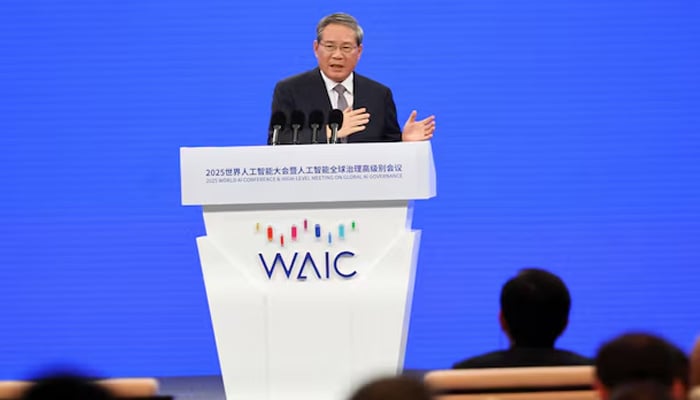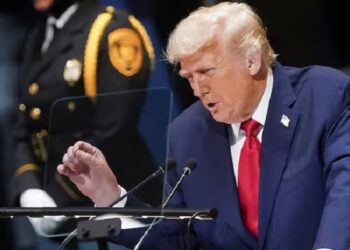Select Language:
China announced plans on Saturday to establish an organization dedicated to fostering worldwide collaboration on artificial intelligence, positioning itself as an alternative to the U.S. while both countries compete for influence over this game-changing technology. Premier Li Qiang highlighted China’s goal to coordinate international efforts in regulating rapidly advancing AI tech and to share its discoveries openly.
The Biden administration recently published an AI strategy aimed at significantly boosting U.S. AI exports to allies, trying to preserve America’s edge over China in this critical sector. While Li didn’t explicitly mention the U.S., his comments appeared to address Washington’s efforts to hinder China’s AI progress, warning that such restrictions risk turning AI into an “exclusive game” played only by a few nations and corporations.
Li emphasized that China supports open AI sharing and wants all nations and businesses to have equal access. Beijing is also willing to exchange its development experiences and products, especially with the “Global South”—a term for developing or lower-income countries mostly in the Southern Hemisphere.
Addressing concerns about AI’s increasing risks, Li pointed out ongoing issues like shortages of AI chips and barriers to talent exchange. “Global AI governance remains fragmented,” he said, noting stark differences in regulatory approaches and institutional rules among countries. “We must accelerate efforts to build a broad, consensus-driven global AI governance framework.”
The Shanghai conference, spanning three days, gathers industry leaders and policymakers amid rising technological rivalry between China and the U.S., which are the world’s two largest economies. AI has become a central battleground.
Despite export restrictions imposed by Washington on advanced AI hardware and chips over security worries—including targeting companies like Nvidia—China continues to make significant AI breakthroughs, catching the attention of U.S. officials.
China’s Vice Foreign Minister Ma Zhaoxu told an international roundtable that Beijing aimed to foster pragmatic AI cooperation and was contemplating making Shanghai its headquarters for this initiative.
The Ministry of Foreign Affairs published a global AI governance action plan, inviting governments, international organizations, businesses, and research institutions to collaborate and promote cross-border exchanges through open-source communities.
The conference usually draws key industry players, government representatives, researchers, and investors. Speakers this year included France’s special envoy for AI Anne Bouverot, renowned AI scientist Geoffrey Hinton, often called “the Godfather of AI,” and ex-Google CEO Eric Schmidt. Elon Musk, who has frequently spoken at previous events, chose not to participate this year.
Alongside panel discussions, the event features exhibitions showcasing the latest advancements. Over 800 companies are participating, presenting more than 3,000 high-tech products, including 40 large language models, 50 AI-powered devices, and 60 intelligent robots. Chinese giants like Huawei and Alibaba, as well as startups such as humanoid robot firm Unitree, form the core of the exhibition. Western participants include Tesla, Alphabet, and Amazon.






